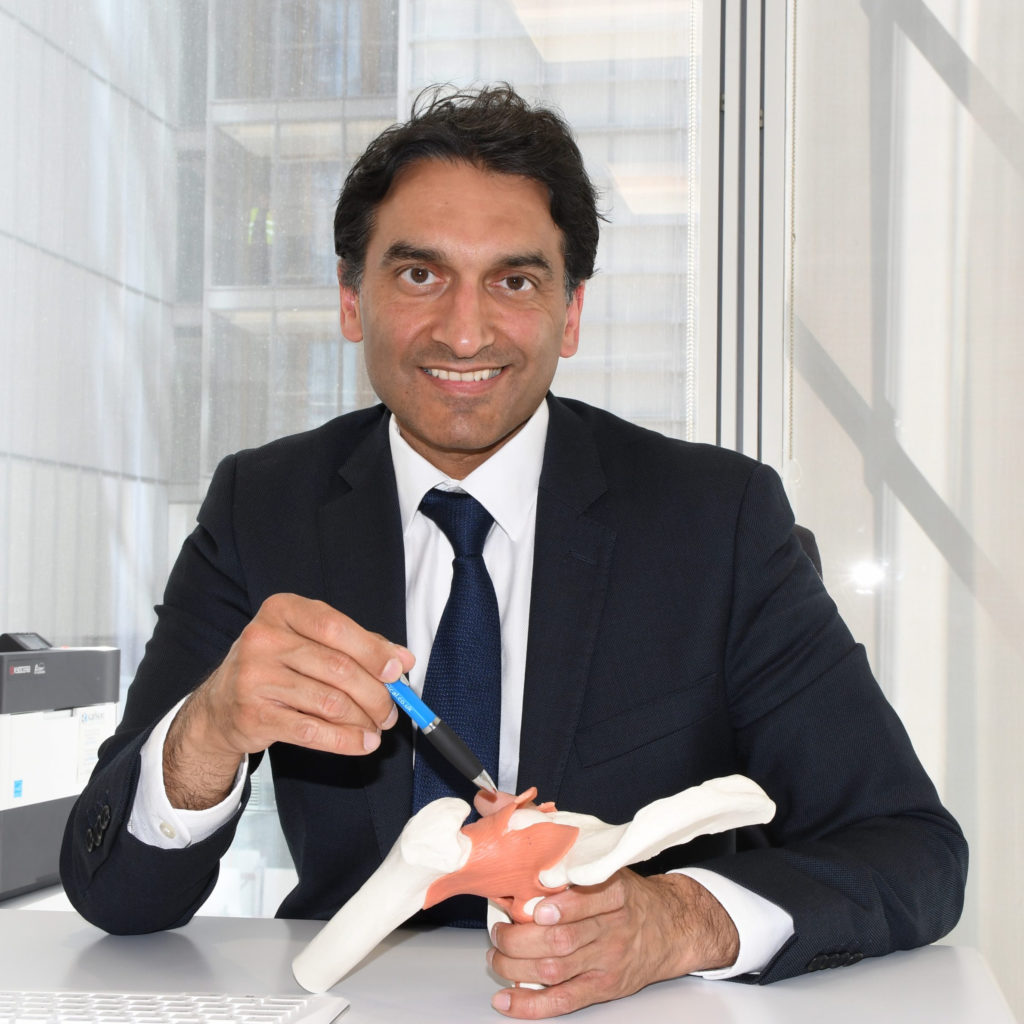
NICE guidelines for the Diagnosis and Management of Osteoarthritis
Orthopaedic Opinions Blog
By Mr Vipin Asopa, March 2023
“Clinical diagnosis of osteoarthritis can be made in those over the age of 45 who have activity-related pain and no morning stiffness or stiffness that lasts no longer than 30 minutes. Diagnosis does not need imaging unless there are atypical features.”
“Initial management can include therapeutic exercise, which you can explore in more detail here, and weight management. Therapeutic exercises can have significant benefits including reducing pain and improving physical function.”
These are the recommendations from the National Institute for Health and Care Excellence (NICE) guidelines for the diagnosis and management of osteoarthritis. These recommendations are being made on estimable evidence and consideration of cost effectiveness. The BMJ (British Medical Journal), have recently published an article on these latest recommendations, which I have summarised:
Exercises
Supervised exercises may have superiority to unsupervised exercise. Therapeutic exercise (for example from a physiotherapist) may be advised for local muscle strengthening or general fitness. Exercise is beneficial even if it initially causes pain, because in the long term it can reduce pain, increase function and improve quality of life.
Weight management
Weight management is important. There is a dose response benefit: the more weight that a person loses the greater the improvement is on the quality of life and physical functional reduction in pain. This benefit is most seen when over 10% body weight is lost, but benefits are seen with all weight loss. More information about weight management can be found on the NHS website here.
Pain relief
Using analgesia and intra-articular steroids does not prevent disease progression. They are, however, important because they can improve function and engagement with therapeutic exercise, which is beneficial. The lowest effective dose with the shortest duration should be used.
Topical anti-inflammatory preparations are effective and have limited side-effects. All anti-inflammatories should be used acknowledging safety warnings. Gastroprotective treatment should be offered to people taking anti-inflammatories.
Considering joint replacement surgery
Referral for joint replacement should be considered when symptoms reduce function and are substantially affecting the patients’ quality of life. And when non-surgical management – therapy, weight loss and pain relief – is ineffective and unsuitable. Clinical assessment should be considered instead of systems that numerically score severity of disease.
Find out more
– The NICE guidance can be read for free at https://www.nice.org.uk/guidance/ng226
– To read the full article from the BMJ, go to: https://www.bmj.com/content/380/bmj.p24.full (requires a subscription to access).

Mr Vipin Asopa, PhD, FRCS (Tr & Orth), MBChB, BSc (hons)
Specialist Consultant Hip and Knee Surgeon in London, with a particular focus on hip pain, knee pain and sports injuries.
Mr Asopa performs numerous surgical procedures including hip and knee joint replacements, arthroscopy, ACL surgery, as well as treating arthritis, ligament injuries, trochanteric pain and more.
To book an appointment with Mr Asopa:
Call: +44 (0) 794 319 1592 | Email: admin@ortho-surgery.uk
References:
1. National Institute for Health and Care Excellence. CG189 Obesity: identification, assessment and management. 2022. nice.org.uk/guidance/cg189
2. Osteoarthritis in over 16s: diagnosis and management (NICE guideline NG226). 2022. https://www.nice.org.uk/guidance/ng226